My recent post (“Your Money … and Your Life”) described some of the decisions facing individuals in making health insurance and health care purchasing decisions. The choices described in that blog post were, generally, decisions that individuals make once per year – such as what type of health insurance coverage to buy (e.g., HMO, PPO, high deductible plan) or whether to open an HSA.
However, the choices described in that post are really part of a larger story – the need for consumers to become their own “patient advocates” –for you, the consumer, to acquire sufficient health literacy to properly participate in your health care, to actively use that health literacy to navigate through our complex medical system, and to advocate for yourself within the health care system. And you need to do this because, at the end of the day, no one else will do it for you.
Health literacy can be defined as “the degree to which individuals have the capacity to obtain, process, and understand basic health information and services needed to make appropriate health decisions.” We are in an era where we need to increase our health literacy. After all, in interacting with the health care system we may be asked to fill out complex forms, provide accurate descriptions of family medical histories and current symptoms, interpret written and verbal instructions from health care providers, and elicit enough information to determine if we want to consent to a particular test or treatment. And, we need to do this in an unfamiliar language (medical jargon) and at a time of stress (while ill or injured) that erodes our ability to understand, process and decide.
This is a widespread problem. In looking at the issue of health literacy The National Academy of Sciences has estimated that almost 50% of the U.S. adult population has difficulty understanding or using information provided in complicated materials. In other words, it is likely that half of the adult population has difficulty understanding or using health information.
In some ways, the need for increased health literacy parallels other demands placed on individuals, such as the need for increased financial literacy to manage our 401(k) plans and the need for increased computer literacy to operate our increasingly smart devices. Unfortunately, the need for greater health literacy is acute (yes, one of those medical terms) – these can be life-or-death decisions and they are often made during interactions with authoritative sounding professionals, when the shame of not understanding can discourage dialogue.
There is no quick fix to this challenge. Perhaps the most important step is to acknowledge the difficulty of understanding medical information and to be persistent in asking questions until you understand your medical professional. That may not sound like much, but for many it would be a large step in the right direction.



